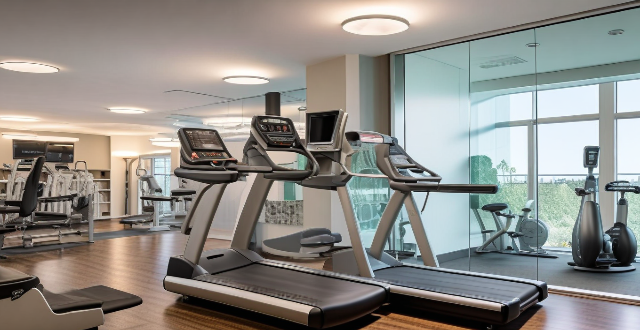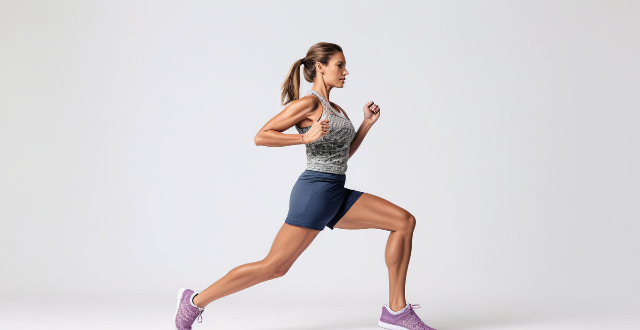Supplement Body

How do I choose the right sports nutrition supplement for my specific sport or activity ?
When it comes to sports nutrition, supplements can playWhen it comes to sports nutrition, supplements can play performance, recovery, and overall supplements can play a crucial role in enhancing performance, recovery, and overall health. However, with so many options available on the market, it can be challenging to determine which supplement is best suited for your specific sport or activity. Here are some tips to help you make an informed decision: - Identify Your Goals: Before choosing a sports nutrition supplement, it's essential to identify your goals. Are you looking to increase endurance, build muscle, lose weight, or improve recovery? Different supplements are designed to address different needs, so understanding your objectives will help you narrow down your options. - Research the Types of Supplements Available: There are various types of sports nutrition supplements, including protein powders, amino acids, creatine, beta-alanine, and pre-workout formulas. Each type of supplement has its unique benefits and drawbacks, so it's crucial to research each option thoroughly before making a decision. - Consider Your Dietary Needs: Your dietary needs play a significant role in determining which sports nutrition supplement is right for you. For example, if you're following a plant-based diet, you may need to look for vegan-friendly supplements that provide essential nutrients like iron, calcium, and vitamin B12. Additionally, if you have any food allergies or sensitivities, it's important to check the ingredients list of potential supplements to ensure they don't contain any allergens. - Evaluate Brand Reputation and Quality Assurance: Not all sports nutrition supplements are created equal. It's crucial to choose a reputable brand that prioritizes quality assurance and third-party testing. Look for brands that are transparent about their manufacturing processes and ingredient sourcing. Reading customer reviews and seeking recommendations from other athletes or coaches can also help you make an informed decision. - Consult with a Healthcare Professional: Before starting any new supplement regimen, it's always a good idea to consult with a healthcare professional, such as a registered dietitian or sports medicine physician. They can provide personalized advice based on your individual needs and help you avoid potential interactions with medications or existing health conditions. - Start with Small Doses and Monitor Effects: Once you've chosen a sports nutrition supplement, start with small doses and monitor how your body responds. Pay attention to any changes in energy levels, recovery time, or overall performance. If you experience any adverse effects or don't notice any improvements after several weeks, consider trying a different supplement or adjusting your dosage. In conclusion, choosing the right sports nutrition supplement requires careful consideration of your goals, dietary needs, and individual preferences. By researching your options, evaluating brand reputation, consulting with healthcare professionals, and monitoring your body's response, you can find a supplement that supports your specific sport or activity and helps you achieve optimal performance.

How should I choose the right sports supplement for me ?
When selecting a sports supplement, consider your fitness goals, research ingredients, read reviews, consult professionals, and start with a small dose.

What are the best sports supplements for weight loss ?
Sports supplements can aid in weight loss, but they cannot replace a healthy diet and exercise. Protein powder, pre-workout supplements, fat burners, multivitamins, and fish oil are among the best options. However, it's crucial to use these supplements responsibly and consult with a healthcare professional before starting any new regimen.

What are the benefits of taking vitamin supplements for women ?
The text discusses the benefits of taking vitamin supplements for women, including improved overall health, better skin health, reduced risk of chronic diseases, boosted immune system function, and improved mental health. It also emphasizes the importance of consulting with a healthcare professional before starting any new supplement regimen.

Can sports supplements improve athletic performance ?
Sports supplements claim to enhance athletic performance, but their effectiveness varies. Common types include protein, creatine, pre-workout, BCAAs, and multivitamins/minerals. Some studies support their benefits, especially when used correctly and in conjunction with proper nutrition and training. However, potential downsides include health risks, unproven claims, and high costs. Consult a healthcare professional before using sports supplements to ensure they align with individual goals and health status.

What are the most popular sports supplements ?
The most popular sports supplements include protein powders, creatine monohydrate, beta-alanine, caffeine, BCAAs, and multivitamins/minerals. These supplements offer benefits such as muscle growth, increased strength, improved endurance, and faster recovery. However, they should not replace a balanced diet and proper training regimen. Consultation with a healthcare professional is recommended before starting any new supplement regimen.

Are there any side effects of taking sports supplements ?
Sports supplements can enhance athletic performance and support recovery, but potential side effects include digestive issues from protein supplements, dehydration from creatine, increased heart rate from pre-workout stimulants, cardiovascular risks from weight loss supplements, and overdose risks from multivitamins. It is recommended to consult with a healthcare professional before starting any supplement regimen to ensure safety and effectiveness.

What are the best sports nutrition supplements for enhancing athletic performance ?
The article discusses the importance of sports nutrition supplements in enhancing athletic performance. It highlights five key supplements that can help athletes improve their performance: 1. Protein Supplements: Essential for building and repairing muscles, protein supplements like whey, casein, and soy protein can support muscle growth, increase strength, and improve body composition. 2. Creatine Supplements: Popular among athletes for increasing muscle mass and improving performance during short, high-intensity exercise. Creatine also enhances recovery between workouts. 3. Beta-Alanine Supplements: An amino acid that increases muscle carnosine levels, beta-alanine can improve endurance capacity during high-intensity exercise, reduce fatigue, and enhance muscle strength and power. 4. Caffeine Supplements: A natural stimulant that can increase energy levels, reduce fatigue, improve mental focus, and enhance endurance capacity during prolonged exercise. 5. Multivitamins and Minerals Supplements: Important for overall health and well-being, multivitamins and minerals can help prevent nutrient deficiencies that could impair performance and enhance immune function and recovery from training. The article emphasizes the importance of choosing safe and effective supplements that meet the specific needs of an athlete and consulting with a healthcare professional or registered dietitian before starting any new supplement regimen.

Are sports supplements safe for athletes ?
Sports supplements claim to enhance athletic performance, but their safety is a concern. Factors affecting safety include lack of regulation, potential side effects, interactions with other medications, and individual allergies or sensitivities. Athletes should prioritize safety by using well-researched supplements, following recommended dosages, and consulting with healthcare professionals.

Do yoga poses have different effects on the body and mind ?
Yoga poses have different effects on the body and mind, including improved flexibility, strength, balance, stress reduction, concentration, and emotional release. Incorporating a variety of poses into your practice can help you achieve specific goals and transform your body and mind.

How does exercise influence hormone regulation in the body ?
Exercise affects hormone regulation in the body, impactingExercise affects hormone regulation in the body, impacting the intensity, duration, and impacting various hormones depending on the intensity, duration, and type of exercise. Regular exercise can increase testosterone levels in men and estrogen levels in women, reduce cortisol levels, and increase growth hormone levels. It can also improve insulin sensitivity and reduce insulin resistance, as well as maintain a healthy body fat distribution. However, excessive exercise or prolonged periods of intense training can have negative effects on hormone production and lead to low testosterone levels in men, low estrogen levels in women, high cortisol levels, low growth hormone levels, worsened insulin resistance, and decreased body fat distribution. Therefore, it is important to choose an appropriate type of exercise and maintain a balanced lifestyle for optimal hormone regulation and overall health.

Are there specific supplements recommended for women's health upkeep ?
The article provides a summary of the top supplements recommended for women's health, including Vitamin D, Calcium, Iron, Folic Acid, and Omega-3 Fatty Acids. These supplements support bone health, muscle function, immune function, cardiovascular health, cognitive function, and overall energy levels. The article emphasizes the importance of consulting with a healthcare provider before starting any new supplement regimen to ensure safety and effectiveness.

What is the potential of rainwater harvesting as a supplement to traditional water supplies ?
Rainwater harvesting offers environmental, economic, and water security benefits. It reduces runoff and replenishes groundwater. Economically, it saves on utility bills and provides a backup supply. During droughts or emergencies, harvested rainwater is a crucial resource. While generally cleaner than treated municipal water, it may require filtration. Communities can reduce urban heat island effects and raise awareness through rainwater projects. Challenges include legal restrictions and initial costs. Successful implementation requires proper design, maintenance, and pest management.

How can I modify my workout routine to accommodate my changing body during pregnancy ?
As a fitness enthusiast, it's important to adapt your workout routine as your body changes during pregnancy. Start with low-impact exercises like walking or swimming and gradually increase intensity over time. Focus on strength training and avoid high-impact activities like running or jumping. Listen to your body and adjust your workout routine accordingly. Hire a personal trainer if needed to create a customized workout routine that meets your needs and accommodates your changing body during pregnancy.

What are the best exercises for a full-body workout at home ?
A full-body workout at home is an excellent way to maintain your fitness levels without the need for a gym membership or equipment. Here are some of the best exercises that you can do at home to get a comprehensive workout: 1\. Squats: Stand with your feet shoulder-width apart and your arms straight out in front of you, then lower your body by bending at the knees and hips until your thighs are parallel to the ground. Pause for a moment, then push through your heels to return to the starting position. Repeat this movement for 10-15 repetitions. 2\. Lunges: Stand with your feet hip-width apart and take a big step forward with one foot, then lower your body until both knees are bent at 90-degree angles. Keep your front knee directly over your ankle and your back knee hovering just above the ground, then push off with your front leg to return to the starting position. Repeat this movement for 10-15 repetitions on each leg. 3\. Push-Ups: Start in a plank position with your hands shoulder-width apart and your feet together, then lower your body until your chest nearly touches the ground. Push through your palms to return to the starting position. Repeat this movement for 10-15 repetitions. 4\. Plank: Start in a push-up position with your hands shoulder-width apart and your feet together, then lower your forearms to the ground so that your elbows are directly under your shoulders. Hold your body in a straight line from head to heels for 30 seconds to a minute. Repeat this movement for 3-5 sets. 5\. Burpees: Start standing with your feet shoulder-width apart and your arms at your sides, then lower your body into a squat position and place your hands on the ground in front of you. Jump both feet back into a plank position, perform a push-up, jump both feet forward so they land outside of your hands, stand up and jump into the air with your arms overhead. Repeat this movement for 10-15 repetitions.

In what ways do factors like body composition and flexibility affect sports biomechanics ?
In sports biomechanics, body composition and flexibility are crucial factors affecting performance. Increased muscle mass and a high strength-to-weight ratio enhance power in weightlifting and sprinting. A lower fat percentage improves aerodynamics and reduces energy expenditure in endurance activities. Higher bone density offers better support in impact-heavy sports. Greater flexibility increases the range of motion, preventing injuries and improving efficiency in rapid movements. Optimal body composition and flexibility can significantly improve an athlete's performance and reduce injury risk.